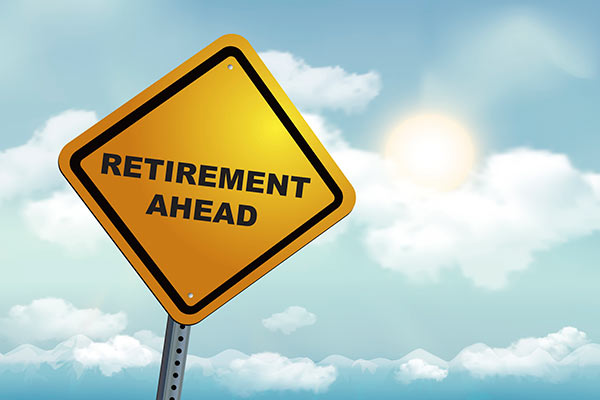Baillie Gifford investment trust manager to retire
A longstanding fund manager at Baillie Gifford will hang up their boots next March. We explain how to approach fund manager changes.
25th September 2025 09:54
by Kyle Caldwell from interactive investor

Spencer Adair, manager of the Baillie Gifford managed Monks (LSE:MNKS) investment trust for more than a decade, will retire next March. Adair has worked at Baillie Gifford for 26 years.
His retirement will mean that just one of the trio of fund managers that took over Monks in March 2015 will remain in place - Malcolm MacColl. The other former lead manager, Charles Plowden, retired in April 2021.
- Invest with ii: SIPP Account | Stocks & Shares ISA | See all Investment Accounts
MacColl will co-manage Monks with Helen Xiong, who was appointed deputy fund manager last July. The duo will be joined by Michael Taylor from next April.
Xiong joined Baillie Gifford in 2008. She has previously worked in the Developed Asia, UK, US Equity Growth and Emerging Markets Equity teams.
Taylor began his investment career with Baillie Gifford in 2009. Following seven years at Marathon Asset Management, he returned in 2022 and has worked closely with the team since formally joining as a decision-maker in April this year.
In a stock exchange announcement, Monks said that Adair will remain in his current role until his retirement and continue to work closely with the team to ensure a smooth transition and handover of responsibilities. It added that there will be no change to the company’s investment objective or strategy.
Monks, which has total assets of close of £2.9 billion, is regarded as a less-aggressive version of Scottish Mortgage Ord (LSE:SMT), also managed by Baillie Gifford. It invests globally and focuses on finding high-growth shares.
- How to spot shares with ‘multi-bagger’ potential
- Sign up to our free newsletter for investment ideas, latest news and award-winning analysis
Summarising the investment approach, MacColl says that Monks is “drawn to businesses addressing a particular ‘crisis’ in a novel manner, which can help to reduce costs and/or produce a radically improved quality of service”.
Since MacColl and Adair took over on 27 March 2015, the trust has returned 253% versus 158% for the average global trust, according to FE Analytics. However, its shorter-term and medium-term performance has been more middling.
Over five years, it has undershot the average global trust, up 35.4% versus 48.4%. For much of that time period, the trust’s investment style has been out of favour due to a backdrop of high inflation and interest rate rises. Both have the effect of devaluing the future earnings of growth companies.
Fund manager merry-go-round
There’s been a flurry of fund manager changes so far in 2025. Exits include Duncan MacInnes of Ruffer Investment Company (LSE:RICA), Stephen Lilley of Greencoat UK Wind (LSE:UKW), as well as Nick Kirrage, the head of Schroders’ global value team, and co-manager of Schroder Recovery, Schroder Income and Schroder Income Maximiser funds.
- 10 tactics when researching funds, investment trusts and ETFs
- What should you do when a star manager leaves a fund?
If a fund manager leaves, it’s important to assess whether you want to stick with the fund or look for another option. While fund groups often try and promote a team approach, individuals have a key influence over how a fund is managed.
When, as in this case, it is a fund manager retiring rather than jumping ship to another firm, it’s important to assess whether succession planning has been smooth.
Stay with the fund if:
- The manager is retiring and there’s been good succession planning
- The departing manager and the new one have worked together in a transition period
- The manager was a team player and the team remains in place
Follow the manager if:
- The manager is a solo star operator
- The whole team is going with the departing manager
- The new fund is a strong match for your needs
Seek pastures new if:
- The incoming manager appears to be making major portfolio changes
- The incoming manager is an unknown quantity
- The investment approach of the fund has changed and no longer meets your needs.
And remember…
It’s important to bear in mind, as the fund management industry so often warns, that past performance is no guide to future performance. While there are some really good active fund managers, the reality is that not even the best managers are immune to a change in fortune.
These articles are provided for information purposes only. Occasionally, an opinion about whether to buy or sell a specific investment may be provided by third parties. The content is not intended to be a personal recommendation to buy or sell any financial instrument or product, or to adopt any investment strategy as it is not provided based on an assessment of your investing knowledge and experience, your financial situation or your investment objectives. The value of your investments, and the income derived from them, may go down as well as up. You may not get back all the money that you invest. The investments referred to in this article may not be suitable for all investors, and if in doubt, an investor should seek advice from a qualified investment adviser.
Full performance can be found on the company or index summary page on the interactive investor website. Simply click on the company's or index name highlighted in the article.